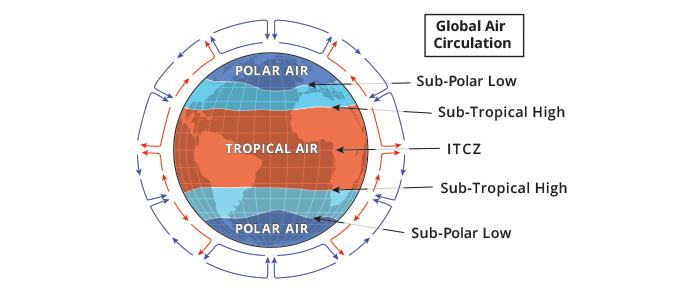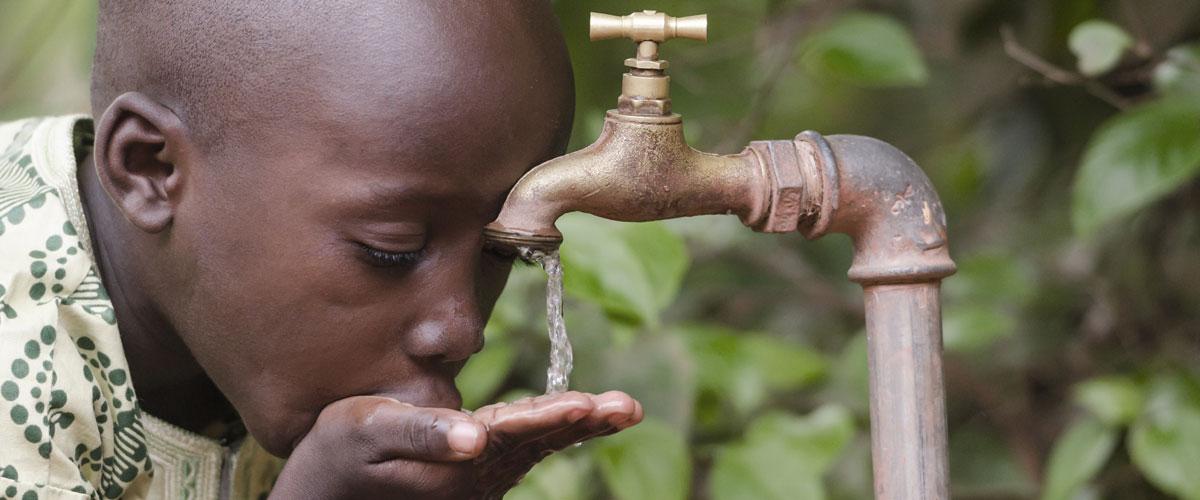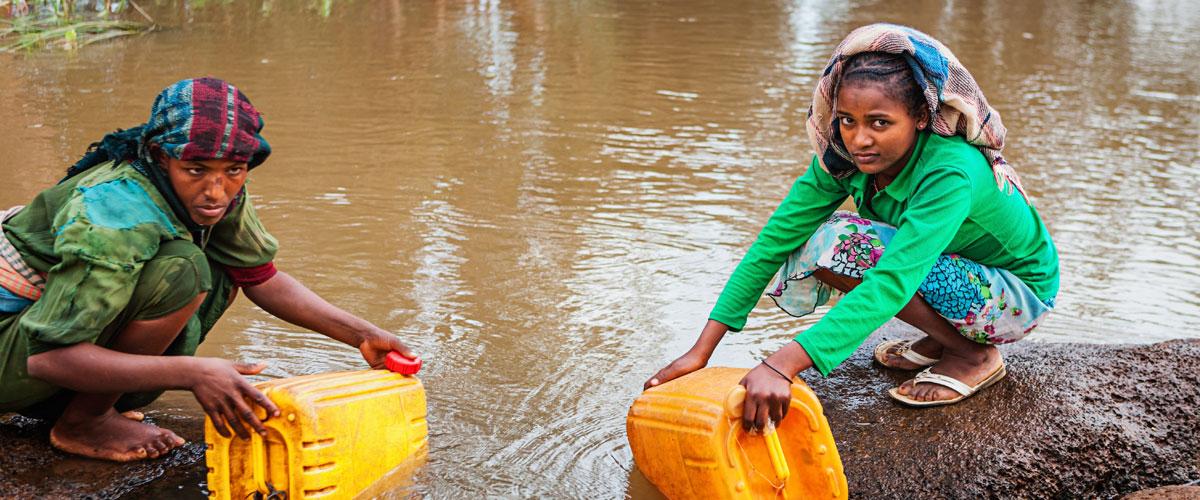Protecting Our Blue Planet: Water, Climate, and the AWS
Water Security Is Inextricably Linked to Climate
By Linda Brown, SCS Global Services
World Water Day (March 22) provides a stark reminder that fresh water is our most precious natural resource. WWF points out that 1.1 billion people around the globe lack access to clean water, 2.7 billion face water scarcity for at least one month of the year, and 2.4 billion are exposed to waterborne illnesses due to inadequate sanitation.
The range of threats to groundwater and surface water is mind-numbing – industrial pollution, agricultural run-off, sedimentation, land conversion, to name a few. Now, water security is at even greater risk as a result of climate change.
One of the key shifts occurring that may well be linked to a warming planet is the change in the tropical air circulation system. This circulation pattern, pictured here, draws warm, moist air upward and outward from the equator. The air then dries, dropping back toward the ground at the southern and northern edges of the circulation. As global temperatures have risen, this circulation pattern has bulged on both sides of the equator, bringing much drier conditions to heavily populated and agriculturally rich regions.
Additional climate system disruption, from the rapid heating of the Arctic and loss of Arctic sea ice, to the melting of glaciers that supply water to hundreds of millions of people, are impacting freshwater availability.
Climate change is producing prolonged drought conditions, which are inextricably linked to regional conflicts from Sudan to Syria. In recent years, droughts have also caused unprecedented wildfires, such as those which raged across the western states of the U.S., Alberta Province in Canada, and New South Wales, Australia in 2017. Arctic boreal forests are reportedly burning at a rate not seen in 10,000 years.
According to the United Nations, Northern Africa and Western Asia experience severe water stress levels (above 60 percent), and the likelihood of future water scarcity is quite high. But perhaps nowhere is the threat of water insecurity more evident than in Cape Town, South Africa, where the water shortage has brought the city of 3.75 million people to its knees. With reservoirs now below 23% of capacity, the city has reduced water pressure in its pipes, and residents are now confined to 13 gallons per person per day, less than 1/6th the average American consumption of 88 gallons a day.
Whether the UN’s Sustainable Development Goal 6, Clean Water and Sanitation (“ensure availability and sustainable management of water and sanitation for all”) can be attained will depend in large part on whether we can stabilize and restore our climate, a tall order by any measure. I’ve written here before about the need to take decisive action within the next decade to reduce atmospheric heat, the driver of rising global temperatures and a key factor impacting our water resources, and we will have more to say on this topic in coming months.
In the meantime, one of the positive developments on the water front is the emergence of the Alliance for Water Stewardship (AWS), the first comprehensive global benchmark for responsible water stewardship. This standard extends well beyond water consumption efficiency to guide major water users and managers in their efforts to advance responsible water governance, achieve a sustainable water balance, assure good water quality, and provide healthy water-related sites and values. Its founding partners include a wide range of stakeholders, including major international environmental NGOs, business associations, research institutes, leading retailers and manufacturers, and United Nations representatives. As a globally approved third-party certification body (CB) to the AWS standard (and the only CB approved in North America), SCS is in a position to independently assess the innovative steps companies are taking to manage water resources responsibly and minimize their water footprint.
Ultimately, water is not an intractable problem. There is a deep wealth of knowledge about how to overcome the issues of water access and security, and a growing international commitment to this worthy cause. The burning question now is whether climate change will overwhelm these efforts, or whether we can muster the political will and resources necessary to reduce the excess heat driving this change.
Linda Brown is Senior Vice President and Co-Founder of SCS Global Services. Reach her at 510.504.0226, or at lbrown@scsglobalservices.com. For more information about certification under the Alliance for Water Stewardship, contact Stanley Mathuram, P.E., SCS Vice President, Corporate Sales and Marketing, at 616.299.1073, or at smathuram@scsglobalservices.com.
If you enjoyed this article, be sure to SUBSCRIBE to SCS Topics to be alerted whenever we publish new articles.




